Marianne Faithfull - Interview
by Nick Dent-Robinson
published: 12 / 4 / 2015
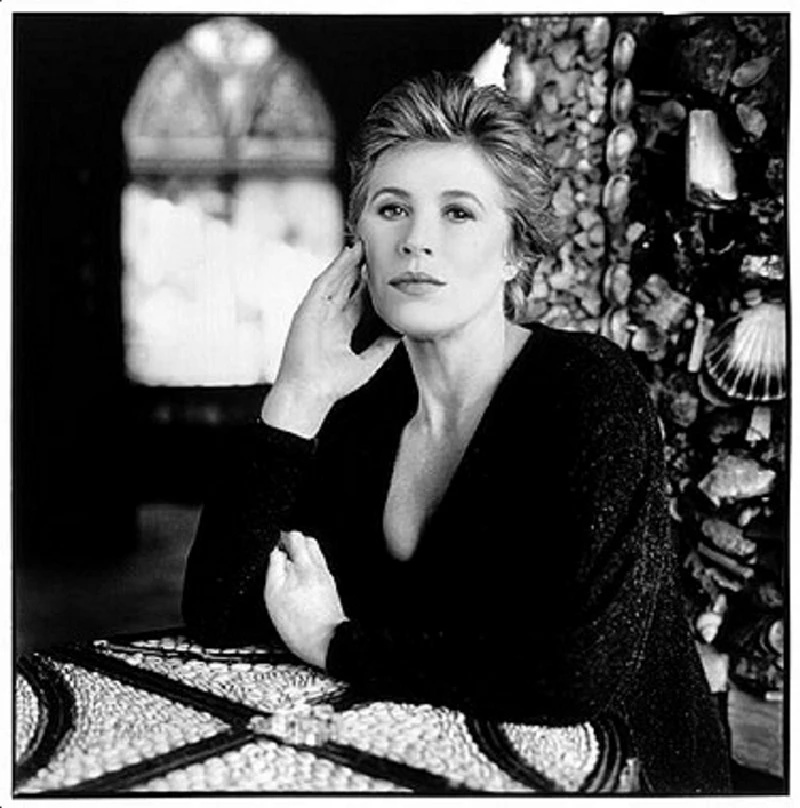
intro
In this interview which was originally published in 1990, Marianne Faithfull speaks to Nick Dent-Robinson about her romance with Mick Jagger and her role as one of the 60's major stars
Marianne Faithfull, icon of the sixties, fragile flower child blowing in the wind, has made another comeback. In the destructive era of sex, drugs and rock ‘n’ roll, she knew them all. Now Marianne has climbed aboard the fame-train once again. Nick Dent-Robinson was invited by her management team to talk to Marianne about her current US tour and her forthcoming London concerts. “Following Jagger’s latest victorious comeback, now Marianne Faithfull plans to conquer the nineties,” was to be the theme. However, the interview was not like that at all. So, where did all the flowers really go, when the “Swinging Sixties” ended? Of all the beautiful people, Marianne Faithfull seemed the least equipped to survive the crushing weight of being brought down to earth. Yet, a little bruised and battered, but alive, one of the most copied icons of the sixties is back on tour in America and set to star in London concerts next month. I had a rare opportunity of an interview with Marianne while she was relaxing at her mother's Berkshire home for a few days’ Easter break. She looked her age, 43, but still had something of that erstwhile charm which has sold a million records and multi-million tabloids over a quarter of a century. Smoking incessantly, Marianne was reticent, almost shy, and clearly distrustful of any representative of the Press. On several occasions I had to remind myself,–and her, that I was there by invitation. However, gradually, after references to mutual acquaintances and good friends of nearly three decades ago, we started to share her story, or parts of it at least. She was more pleased than I had expected to be reminded of her time at St Joseph’s Convent School, Reading, where she had been acclaimed as an outstanding schoolgirl actress and student of exceptional intellect. By chance, she had known the sister and other friends of a sixth form mate of mine and, to my surprise, she was even able to update me on the whereabouts of some former St Joseph’s girls who I had not thought about for over 20 years. As we talked, we gradually, even painfully, ventured into the better-documented Marianne Faithfull story. Gazing out of the cottage window at a field of lambs frolicking in the Easter sunshine, I reflected that the life and times of Marianne Faithfull probably tell you more about the sixties than any retrospective look at bygone charts or sad excursions into some sixties revival show featuring one-hit wonders who were never really “in with the in-crowd”. It is possible to pinpoint the very night when that serious-minded and innocent convent girl jumped over the wall and threw in her lot with a generation that crackled with energy and soared high on optimism, and was anything but predictable. It’s hard to realise it now, but they were a generation that was doing nearly everything for the first time. The night was Good Friday 1964, exactly 26 years ago, and Marianne went partying in London. The party was thrown by the proud parents of the precocious (as Marianne now describes her) Adrienne Posta in their Bayswater home, to launch the 15 year old’s singing career. This was short-lived, whereas Adrienne's acting brought her acclaim in TV’s ‘The Bar Mitzvah Boy’, and the archetypal sixties movie, ‘Up the Junction’. Adrienne’s mother had been on the stage and had invited her own set from the cabaret venue, The Talk of the Town. They wafted by, awash with old-time glamour on a wave of expensive perfume and with the ripple of feather boas. The sound of erotic jazz provided a sophisticated backcloth. Champagne and spirits flowed. The Sixties Revolution was not yet fully under way and people still danced in pairs. Marianne Faithfull, unknown and practically unseen, arrived early and sat on the stairs, watching with her deep-set blue eyes the last waltz of the showbiz generation that passed for high society before rock ‘n’ roll ruled the world. Golden hair fell about her exquisite young face like silk. I remember her then and I can visualise how, in her simple shirt and jeans, she would have looked, like a fresh daisy in an exotic, botanic hot-house. She had been brought by her new boyfriend, John Dunbar, a Cambridge University student who was destined to become an art critic and gallery owner. One of his main claims to fame not very many years later would be the part he played in introducing John Lennon to Yoko Ono. As the daughter of an Oxford University don, a Professor of Psychology, and the Austro-Hungarian Baroness Erisso, Marianne was 17 and still studying for two more A Levels. She had passed two with A grades at 16 at the posh convent school in Reading. Her future should have lain in the Groves of Academe, not ‘Strawberry Fields Forever’. John Dunbar spent much of the evening chatting to his friend, Peter Asher, who was to have a hit with ‘A World Without Love’ before emigrating to Los Angeles and making a fortune as a record producer. Peter was also a friend of Adrienne Posta. Peter’s sister, Jane Asher, was missing from the party being otherwise engaged with her new boyfriend, Paul McCartney. She had already made a bit of a name for herself as a regular member of the panel of BBC TV’s ‘Juke Box Jury’. Around midnight, when the Marquee and the Flamingo Clubs shut their doors, Adrienne’s manager arrived with his star act, the Rolling Stones, complete with girlfriends. Andrew Loog Oldham, a brilliant and outrageous 19 year old, had wrested the South’s answer to the Beatles - whose manager, Brian Epstein, had once employed Oldham as a publicity assistant -– from Giorgio Gomelski. The group were being booked by Gomelski as semi-pros into legendary venues like Eel Pie Island and the Station Hotel, Richmond, as well as more ordinary places like the Reading and Tilehurst Jazz Club and Oxford Town Hall. Andrew Loog Oldham had bigger plans for them, as he did back then for Adrienne Posta. Even Marianne could see that the Stones were neither safe nor predictable, and that they brought a frisson of excitement with them into the house. That evening, however, they hardly noticed her. Brian Jones was with his model friend, Linda Lawrence, a protégé of top photographer, Terry Donovan. Linda eventually married Brian’s friend, Donovan, and lived happily ever after in America, but not before producing Brian’s son, Julian, strikingly like his father and a very gifted classical musician who, touchingly, Marianne still lunches with from time to time. Brian Jones was apparently uncharacteristically subdued. Although his driving style was like a Sunday School teacher’s compared with Oldham’s, he had run over a cat in his flash new Jaguar E-Type sports car that evening and was inconsolable. Mick Jagger arrived with Chrissie Shrimpton, the younger and, according to Marianne, rather more volatile sister of top model, Jean, and they spent most of the night sitting at opposite ends of a Chesterfield sofa. Both had sunny personalities, but their relationship was characterised by one storm cloud after another. The next day they would be all over each other once again, in a very public display of togetherness. Bored with all the undercurrents, Andrew Oldham took to the cool of the stairs and fell into the gaze of Miss Faithfull’s grave eyes. “You have a commercial face,” he said, and that phrase was to change Marianne’s life. Her face could be his fortune, Oldham mused. At that stage, he still doubted whether the Stones had any long-term future. He took in Marianne’s Dresden China skin, the full sensuous lips in the guileless face. As Oldham recalled later, something about Marianne reminded him of ‘Paradise Lost’, which a mere two years before he had been studying for his English Literature A Level. He suddenly saw 'The Fall' written right across Marianne’s classically-beautiful countenance. Oldham was a man who knew how to sell image. “Would you let your sister go with a Rolling Stone?” - Andrew had planted that thought throughout the media. He revelled in the shock of the new. Marianne never returned to school. Weeks later she was cutting her first disc. Mick Jagger and Keith Richards had written the perfect song for her gentle voice, wistful and tremulous - some say it was made more tremulous by the application of early electronic technology - against a haunting sweep of strings. Nobody had asked Marianne if she could sing. There was no rehearsal. It didn’t matter. As she nervously put her voice on the backing track, the person who had appointed himself as her publicity agent chatted throughout. Oldham was relaxed. He didn’t care. She was a saleable commodity. They had a hit. ‘(I Sit and Watch) As Tears Go By’ was to be the story of Marianne’s life. She was to answer the prayers of a whole generation of tabloid sub-editors and picture editors. Her every move would, within months, be worth at least a minor headline. When she toured with rock’s big names, Marianne could be found curled up by herself on the train in her school specs reading Dostoyevsky. She would study Marlowe, Shakespeare, Chaucer, Milton, Spenser and, best of all, John Donne, for hours on end. She had one toe in the deep water and the other still on dry land. She married John Dunbar just after her 18th birthday and they had a son, Nicholas, named after the friend of a friend. Marianne wasn’t seen at any of the big parties, despite what the media wrote later. There were, of course, exceptions, like the Jones boys’ bash, when Tom and Paul (of Manfred Mann) and Brian partied together and ended up jamming out rhythm and blues classics for eight short hours. Tom Jones still recalls that as one of the highlights of his whole life. The Moody Blues held open house in Roehampton and Tom Jones went there on the day ‘It’s Not Unusual’ hit Number One. He always sang for his supper and the party turns on such occasions could end up with supergroups comprising - choose any combination at all - Eric Burdon, Jimi Hendrix, P J Proby, Jimmy Page, Eric Clapton, Georgie Fame and Alan Price. Just occasionally – but relatively rarely because they were kept precious and separate by their manager - one of the Epstein stable would also appear and, even more exceptionally, there might even be a Beatle. Marianne remembers the night vividly. Settling back into her mother’s well-worn antique leather sofa, Marianne also recalled there was another party in Belgravia at the home of Melissa Fairbanks, daughter of Douglas, hosted jointly with Caroline Maudling, daughter of Home Secretary, Reginald, that turned into a raucous eviction of their tenants,The Pretty Things, another of Andrew Loog Oldham’s creations. These new rock stars bought their party clothes from Chelsea boutiques run by and frequented by the young ‘beerocracy’ and the arty upper crust. As Marianne pointed out to me, it is a fallacy that the scions of noble houses were brought low by the crude sex, drugs and rock ‘n’ roll of the pop world. This is the upper middle class propaganda which has prevailed.But it was almost always the reverse. The pop stars came from the lower middle and occasionally - not often - the working classes and they aspired to climb higher. They bought their rock star trimmings - including purple hearts and, later in the decade, LSD and, later still, cocaine and heroin - from the decadent rich who were widely travelled and brought back exotic substances to negotiate their way into the raw, exciting and energised new aristocracy of rock. A surprising number of the rock nobility were art school drop-outs like Keith Richards and Phil May, or even art school graduates like David Bowie in his mid-60s persona of Davy Jones or Ray Davies of the Kinks. They spent their idle moments in West End galleries where they were befriended by sophisticates of less talent but more money, like Robert Fraser, who was to go to prison for six months in the same infamous drugs case that had almost put Mick Jagger and Keith Richards behind bars and which was ultimately to be remembered for the mystery girl, wrapped in a fur rug, who was present when the police raided Keith’s beautiful home and who was ungallantly revealed by ‘The Sunday Times’ to be Marianne Faithfull. Marianne meanwhile had outgrown her marriage and parted from John Dunbar after a mere two years. She took her child everywhere with her, closely supervised by her mother, the charming Baroness, who, apart from charitable work, still ran a small coffee bar in an arcade off Reading’s main shopping street. It was Stash de Rola, the jet-set prince and would-be pop star, who belonged to the Stones’ inner circle, who summed up the young Marianne perfectly in an interview in ‘Time’ magazine: “There is the real Marianne; strong, knowing and deep. And there is the dream Marianne. A man had a dream picture of her as a simple, sweet, shy little creature who must be cherished always, forever. He tries to make her conform to the dream. However, he is destined to be unfulfilled, forever.” Indeed, the real Marianne was developing a restless urge for excitement, for the buzz she sensed all around her. She was low and at her most vulnerable during the San Remo Song Festival in 1967 when she turned to Mick Jagger, who was footloose and fancy free at that moment. Sharing her life with Mick, Marianne put on a show of being anti-establishment because the establishment was anti-Mick. She believed that society’s laws were based on money and snobbery instead of virtue and goodness. It is an ironic fact that many of the most appealing people and greatest talents of the sixties are dead or near-buried, while the hangers-on and the sharp movers are now millionaires. We reflected upon the near-tragedy of this as Marianne poured more herbal tea into an exquisite antique china cup. Continuing the story, Marianne described how by now she had learned to swear and smoke. She shared with Mick, a former LSE student who was awarded a degree after a mere two years of study and who was sharp as a needle on a sixties gramophone, her love of literature. The Jagger-Richards ballad, ‘Lady Jane’, was based on letters from Henry VIII to Jane Seymour that Marianne and Mick together found in a museum. They would spend hours at the Reading Museum of Rural Life researching into obscure literary references to Berkshire villages. They would also occasionally meet Professor Neville Coghill, Oxford University’s most brilliant expert on Chaucer, and friend of Marianne’s father, and they would enjoy a private tutorial on some of Chaucer’s lesser-known works. When Mick quoted from Shelley’s ‘Adonis’ as thousands of butterflies were released at the memorable Hyde Park Concert that turned into a wake for Brian Jones, Marianne stood at the side of the stage weeping. Looking back from the nineties, it is hard to regard such occasions as anything more than embarrassingly over-sentimental and tacky. But it would not have seemed so then. By this stage, Marianne had achieved critical success as a serious actress in Chekhov’s ‘Three Sisters’ on the West End stage. Then she blew it totally with two disastrous films, ‘I’ll Never Forget What's'isname’ (an instantly forgettable picture except for the nudity and the revelation that Marianne - surprisingly - looked far better clothed, and the bad language which was breaking new frontiers even then); and the other movie which she describes as “nasty and kinky” called ‘Girl On A Motorcycle’ in which she dressed in black leathers and more or less seduced the bike. Later, Marianne cut off her hair as a penance for her participation in that movie – though, more than two decades on, this film is on its way to becoming a cult classic. Marianne lived with Mick in Cheyne Walk, Chelsea; the birds of paradise all flocked there. People like Talitha Getty, smelling of old money, which always seemed to excite Jagger, but somehow simultaneously served to distance him from Marianne. The real Swinging Sixties stretched only from 1964-1967. By 1969 it had already soured and, increasingly, the flowers were choking. Marianne was crushed when she lost the baby she and Mick expected. He signed to play Ned Kelly with Marianne as his sister in the film about the Aussie outlaw. Before they left for Australia, they were both arrested on a minor drugs charge (he was fined £200; she was acquitted). Brian Jones, long parted from Linda Lawrence and sick at heart after the love of his life, his look-alike Anita Pallenburg, had ditched him for Keith Richards, parted from the Stones and was dead within days. Marianne, who loved Brian almost as a sister would, was already mourning her marriage, with the divorce finally through. As Marianne reflects now, it must have been like looking down a kaleidoscope and finding the fragments of your life at the bottom. Marianne arrived in Australia pale and tear-stained. The Press gave Mick an insulting reception, ridiculing her man, a Pommie, for daring to play their precious Ned. A day later Marianne was in a coma, fighting for her life. When she eventually came out of it, the poetry was still in her soul, but the iron had entered her heart. The people who said terrible things about her could no longer touch her. Marianne and Mick never made it. He married and divorced his exotic look-alike, Bianca, and he seems set to grow old and grey - at least on the outside - with Jerry Hall and their beautiful children. Though whether this relationship will stay the very long-term course, Marianne does just wonder. She certainly wishes them both well. Marianne went punk briefly;her final frontier, perhaps? Now, at 43, she is on the road again. As tears go by, Marianne keeps smiling through. The sixties survivor whose life became a fable for her time. She has no regrets, she tells me, adding poignantly, “What’s the point?” She says there is so much she still has not done and so much she feels she positively needs to do. She is heavily into Russian literature and this is no false veneer. When I asked where she’d like to see herself in 20 years, she said she would, on balance, still like to be alive and her wildest dream now would be to follow in her father’s footsteps and somehow make it on the academic circuit, perhaps even aspiring to become an Oxford don. “Do you think that might be possible?” she asked me almost plaintively. “So why do you still chase after the glamour?”,I asked. She looked genuinely puzzled, shrugged her shoulders and said, “I honestly don’t know; my dread is that it is some kind of conditioning. When I visited Andrew Loog Oldham recently on his ranch near Bogotá, Colombia, he told me that he feared I would never escape and he always felt responsible for ensnaring me in this glitzy world.” “So, do you regret that?” I asked, again. “Not entirely,” she replied, somehow profoundly. “You see, I have enjoyed almost everything I have done, but I just wish I’d had more time to please my parents, my teachers and the many parts of myself that remain somehow unfulfilled. There never seems to have been enough time, enough space. It is as if I’ve lived at least four lives in my 40 years or so and I know I will have to slow down soon.” “Relationships are of relatively little interest now, apart from my relationship with Nicholas, who is nearly 26 and very self-possessed. I haven’t minded doing this latest tour of mine and I quite look forward to the London concerts. It is a challenge.” “However, it may well be my final lap around this particular circuit and I do have a genuine yearning to abandon myself to the English countryside and to live the rest of my life, however long or short that may be, through literature. Richard Ingrams (the former editor of Private Eye magazine, church organist, bookshop co-proprietor and near-neighbour of Marianne’s mother) is very encouraging and is convinced I can and will do it. Maybe that’s just because he wants me to keep buying expensive books from his wife's bookshop in Wallingford!” On this note of self-doubt - but with not a hint of self-pity, the interview ended. And surprisingly, at that moment I felt no sense of sadness about this figure from the past. There had been an enigmatic quality about her which I had not really anticipated. We had hardly discussed her concert tour, her present activity in the music business. Somehow it had seemed such an irrelevance as we sat in the civilised surroundings of a charming thatched cottage in deepest rural Berkshire. As we parted, I found myself, almost uniquely for a journalist who has just completed an interview held at the behest of a pop star’s publicity team, sincerely wishing Marianne a future of obscurity and tranquil happiness. Marianne smiled softly as she saw me out of the garden gate and said, with a sincerity rarely encountered in the entertainment world, “Thank you so much. Thank you for listening and for bothering to try to understand.” She had retained a curiosity about herself and her future as well as a gentility and old-world courtesy. Qualities that all those years of her close association with the most raucous elements in the world of rock ‘n’ roll had not wrought from her. In fact, she reminded me of a convent schoolgirl. I simply had not expected that.
Band Links:-
http://www.mariannefaithfull.org.uk/https://www.facebook.com/mariannefaithfullofficial
https://x.com/faithfull_m
https://www.instagram.com/mariannefaithfullofficial/?hl=en
https://en.wikipedia.org/wiki/Marianne_Faithfull
Picture Gallery:-
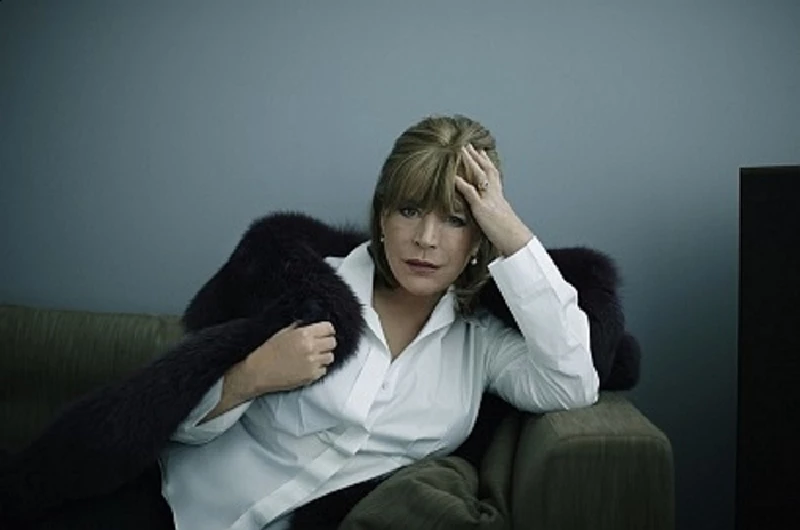
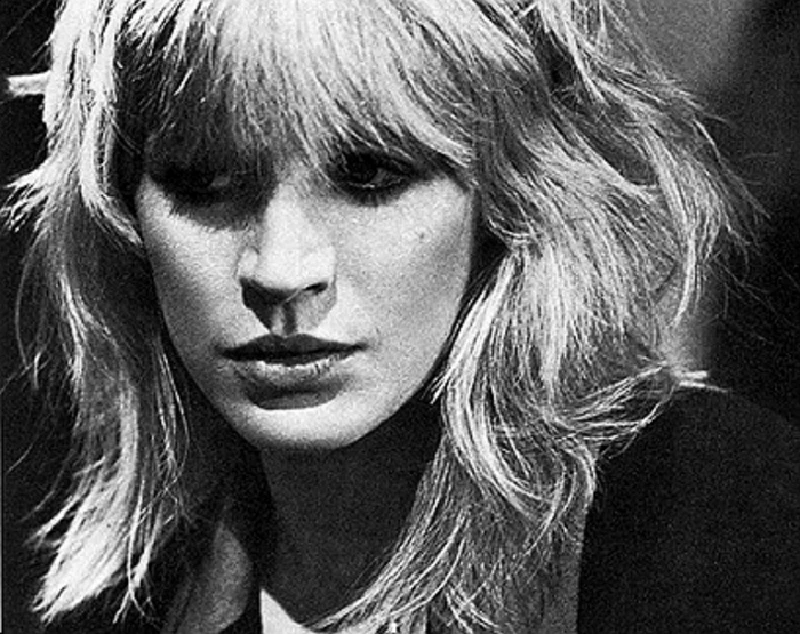
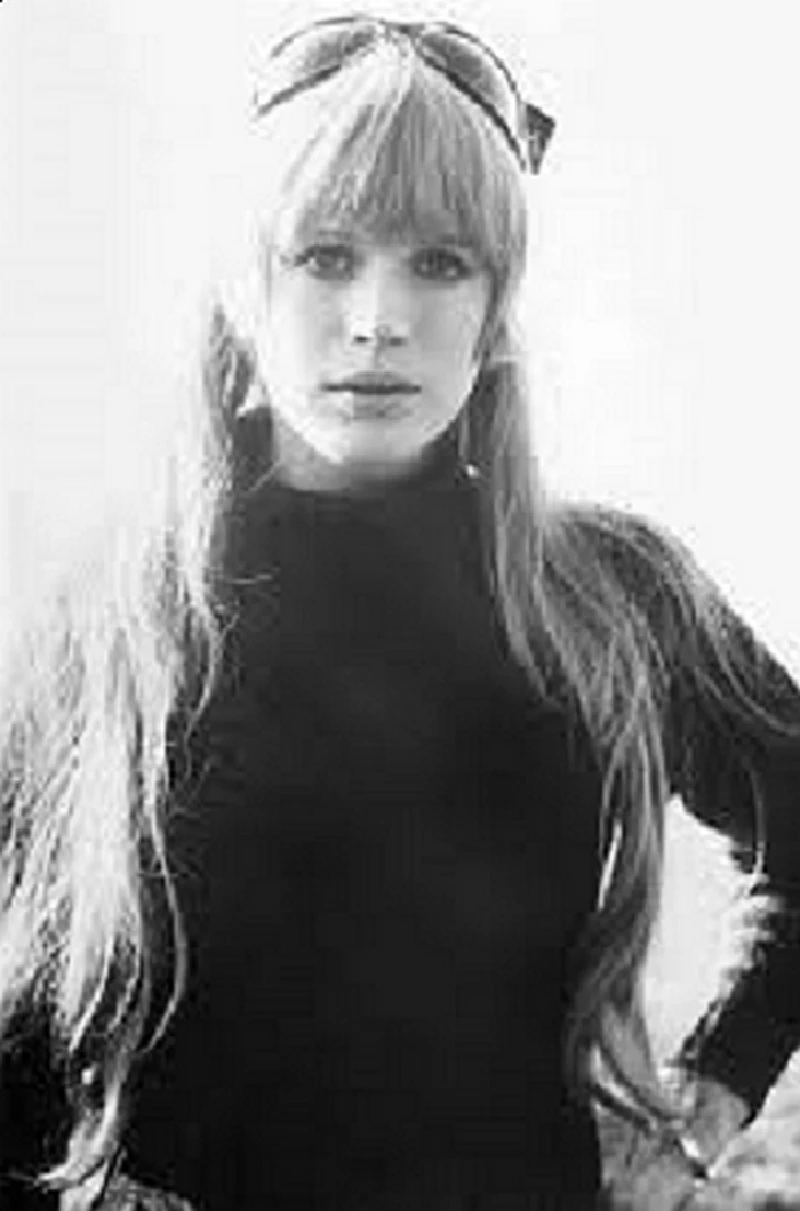
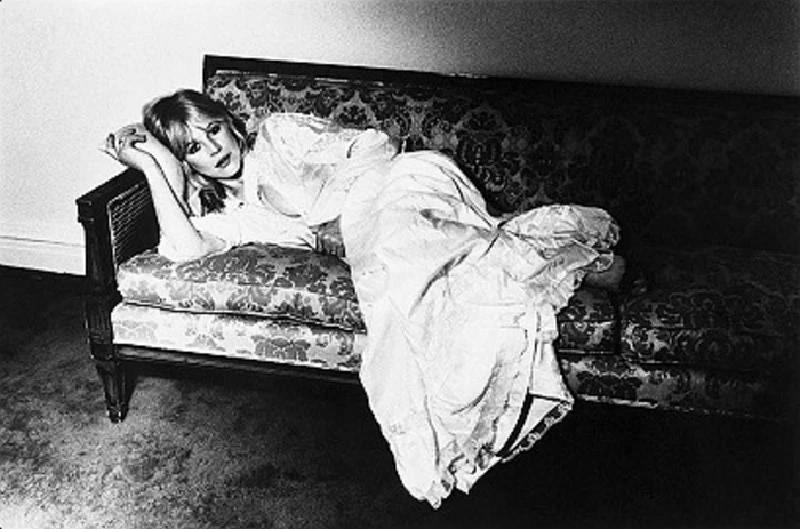
Visitor Comments:- |
| 14932 Posted By: Martin W. King, Raleigh, North Carolina, USA on 31 Jan 2025 |
|
Dear Marianne. You will not remember me, but I was your very first singing and acting partner when you performed a musical with me at Leighton Park School, Reading when you were 14 or 15 years old and attending St Joseph's Catholic School. Our lives have taken us on very different journeys, but we share a love music and acting that will never die!! Rest in peace! Martin.
|
interviews |
|
Interview (2015) |
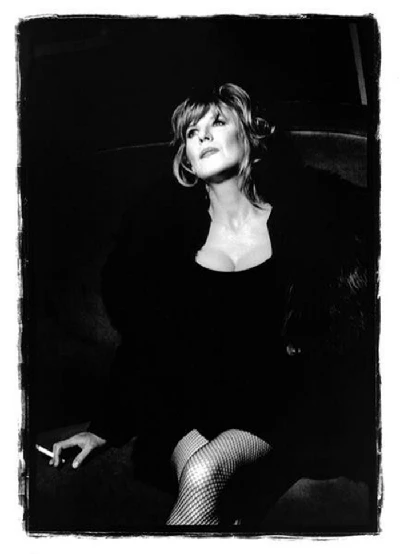
|
| In this archival interview from March 1995, Nick Dent-Robinson speaks to Marianne Faithfull and late father Glyn about 'Faithfull', her then new autobiography |
profiles |
|
Reflections (2025) |
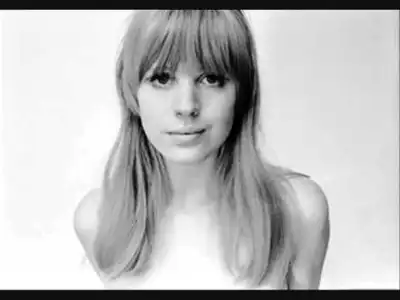
|
| Nick Dent-Robinson reflects on the life and career of Marianne Faithfull, who died on the 30th January. |
favourite album |
|
Broken English (2013) |
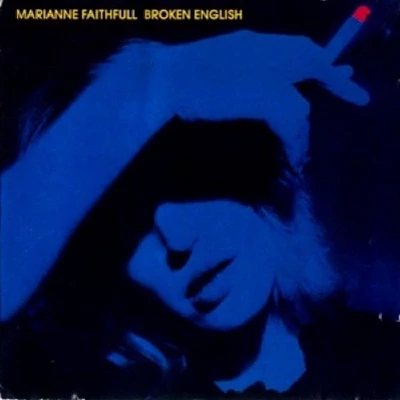
|
| In our 'Re:View' section, in which our writers look back at albums from the past, John Clarkson reflects upon Marianne Faithfull's classic 1979 comeback album, 'Broken Edition', which has recently been re-released in a deluxe edition |
reviews |
|
Give My Love to London (2014) |
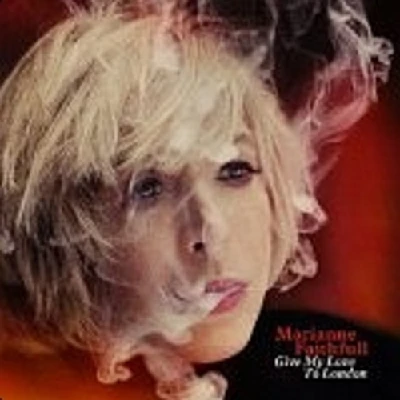
|
| Emotional new album from Marianne Faithfull, which celebrates the 50th anniversary of her recording career |
most viewed articles
current edition
John McKay - InterviewCathode Ray - Interview
Robert Forster - Interview
When Rivers Meet - Waterfront, Norwich, 29/5/2025
Spear Of Destiny - Interview
Fiona Hutchings - Interview
Carl Ewens - David Bowie 1964 to 1982 On Track: Every Album, Every Song
Chris Wade - Interview
Shrag - Huw Stephens Session 08.12.10 and Marc Riley Session 21.03.12
Brian Wilson - Ten Songs That Made Me Love...
previous editions
Heavenly - P.U.N.K. Girl EPBoomtown Rats - Ten Songs That Made Me Love....
Manic Street Preachers - (Gig of a Lifetime) Millennium Stadium, Cardiff, December 1999
Allan Clarke - Interview
Oasis - Oasis, Earl's Court, London, 1995
Barrie Barlow - Interview
Beautiful South - Ten Songs That Made Me Love...
Pixies - Ten Songs That Made Me Love...
Chuck Prophet - Ten Songs That Made Me Love...
Dwina Gibb - Interview
most viewed reviews
current edition
Peter Doolan - I Am a Tree Rooted to the Spot and a Snake Moves Around Me,in a CircleVinny Peculiar - Things Too Long Left Unsaid
Garbage - Let All That We Imagine Be The Light
Vultures - Liz Kershaw Session 16.06.88
John McKay - Sixes and #Sevens
Little Simz - Lotus
HAIM - I Quit
Pulp - More
Lapsley - I'm a Hurricane, I'm a Woman In Love
Billy Nomates - Metalhorse
Pennyblackmusic Regular Contributors
Adrian Janes
Amanda J. Window
Andrew Twambley
Anthony Dhanendran
Benjamin Howarth
Cila Warncke
Daniel Cressey
Darren Aston
Dastardly
Dave Goodwin
Denzil Watson
Dominic B. Simpson
Eoghan Lyng
Fiona Hutchings
Harry Sherriff
Helen Tipping
Jamie Rowland
John Clarkson
Julie Cruickshank
Kimberly Bright
Lisa Torem
Maarten Schiethart